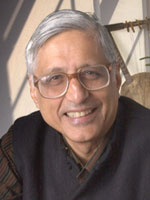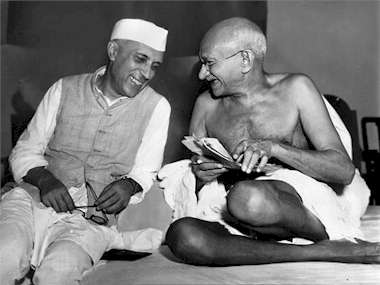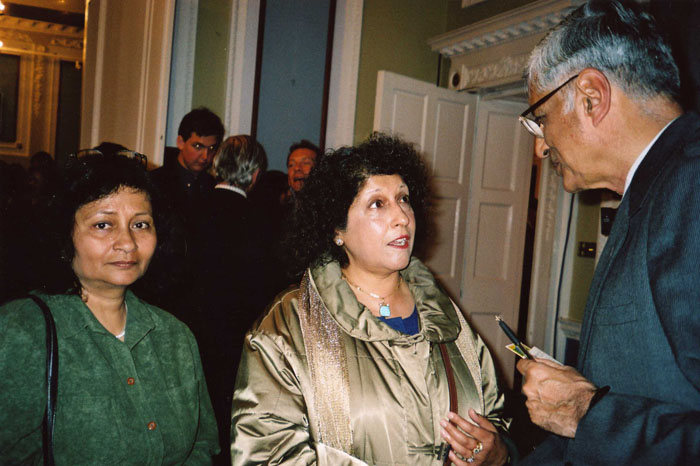In the presence of Professor Rajmohan Gandhi grandson of The great Mahatma and Mihir Bose distinguished sports writer, BBC's sports Editor and chairperson.
Professor Rajmohan Gandhi read us amusing and exciting excerpts from his book GANDHI: The Man, His people and the Empire and charmed us all with anecdotes and fed us morsels of tantalising information revealing aspects of Gandhi's private and public life.
"My dear London" is what Gandhi used to write thinking fondly about London having much admiration for British architecture and buildings such as St Paul's and Westminster Abbey and was even known to have shed tears at the thought of these edifices being destroyed during the war.
We were told, while Gandhi was in London studying Law at Middle Temple, he would embark on marathon walks in search of vegetarian food. He meticulously noted the English tradition of breakfast, lunch, tea and dinner with biscuits & tea being served on awakening and scoffing even more biscuits before retiring! Students were obviously well fed.
It was revealed Gandhi disapproved of trains, planes and automobiles but loved ships having travelled on P&O Ocean liners as he simply loved the sea.
It's a fact that Professor Rajmohan's book took 2 years to complete and much of the research, material and documentation on Gandhi was archived and found in London...the British Empire being custodians of such invaluable information.
Furthermore, the Professor revealed that Gandhi as a successful lawyer practising in Bombay and being a public figure in public service urged Kasturba his devoted wife to give up her ornaments and gifts given to them by many people. Kasturba in turn argued with Gandhi and was reluctant to do so and wanted to keep her ornaments asking her husband what would they give their sons' future wives if she gave away all...
During the Professor's discussion with Mihir Bose and the Q&A session the question was asked whether Gandhi had racist tendencies having once made the remark that he (Gandhi) had been "repelled" by the habits of some of those people. The remark referred to hard-core criminals with whom Gandhi had been jailed where he languished in time for his part in supporting and defending the rights of Indians living in South Africa.
Surprisingly, present at the event and seated right behind me was Owen Humphrey grandson of Lord Wavell who introduced himself to the audience and posed a question about Gandhi's polemic "blood bath" remark, wondering whether Gandhi had a hidden temper and had required anger management! Prof Gandhi said it was "perhaps unfair to take that remark out of context" as it was made during a crucial, heated political discussion at a critical time and on the critical state and fate of India. Though Gandhi believed in non-violence and was a peace loving man, he was at the same time also "only human!"
Professor Gandhi addressing Bose reminded us all saying "we're sitting here cool, calm and collected...but, one has to remember at the time prior to Partition there was a lot of resentment and hatred of the British" or words to that effect. A time when India was being torn apart, facing challenges of a power struggle from various fuming factions pulling in different directions with fulminating uprisings and unrest in the country. A time when people's emotions and feelings rose beyond boiling point due to India's struggle for freedom and independence from British rule, that was the scenario in which Gandhi had made ‘that' remark.
In his articulate and eloquent manner Professor Gandhi continued to respond to other questions inc. whether Gandhi suffered from hubris and was a pacifist; he replied with passion and often a touch of humour.
The reading and discussion was a revelation and I had the pleasure and privilege of meeting Professor R Gandhi and Owen H at the Reception that followed. And, as usual I was also happily engaged in conversation with various friends and associates of the Nehru Centre making it a memorable and enjoyable evening.
By Amita Chatterji ©
was inspired - article written without any notes
 Prof Rajmohan Gandhi
Prof Rajmohan Gandhi

Nehru and Gandhi

Anuradha, Amita and Professor Rajmohan Gandhi at the Nehru Centre